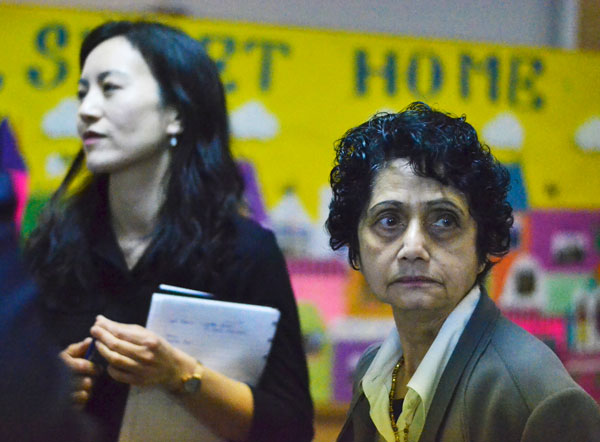
A Prince Albert physician says there needs to be more awareness of how prevalent cervical cancer is in Saskatchewan, especially in the north.
Local gynecologist and obstetrician Dr. Lalita Malhotra was one of several speakers invited to the Pan-Canada Elimination of Cervical Cancer Conference, a gathering of medical experts held in Halifax in November. Malhotra said it’s a common concern in Saskatchewan due to the province’s high HPV rates.
Cervical cancer is caused by persistent infection with the human papillomavirus (HPV). Women living with HPV are six times more likely to develop Cervical Cancer, according to the World Health Organization.
“It’s quite high,” Malhotra said when asked about rates in Saskatchewan. “We would like to eliminate it completely. This is the first conference now that the pandemic is over. I think we’re going to be working on another one.”
Malhotra said rates of Cervical cancer can vary across the province, but in some smaller northern communities, the rate can run up to 56 per cent.
Malhotra said more people are starting to become aware that Cervical Cancer is a major health problem. Testing methods are also improving, with at home testing kits being rolled out across Canada.
Those testing kits are only starting to become available in Saskatchewan, Malhotra said, but when they become more prevalent it will allow at risk patients to get a quicker diagnosis.
“This is going to help us eliminate cervical cancer very quickly because the patient will not have to make appointments,” she explained. “She will not have to travel. She can just put it in the mail.”
According to the Canadian Partnership Against Cancer (CPAC) more than 1,300 people are diagnosed with Cervical Cancer each year. Roughly 400 patients die from it every year as well.
A proven HPV vaccine exists, which decreases the likelihood a patient will develop Cervical Cancer. However, CPAC says, there are challenges getting the vaccine, and testing, to underserved communities.
Canada has pledged to eliminate Cervical Cancer by 2040, a goal CPAC called “an ambitious target, but an achievable one” in their 2020-2030 action plan.
In an introduction to the action plan, CPAC CEO Cynthia Morton wrote that adopting HPV self-sampling would help eliminate the cancer by allowing women to screen themselves anywhere at any time.
Malhotra was one of more than 150 decision-makers, healthcare professionals, patients, and community partners invited to the summit. She said it was an honour to be invited, and credited organizers for running and informative event.
“The experience was excellent,” she said. “People were very cordial and very helpful in every manner. I have all the praise for them. The organization was good, and the speakers were great. The small sessions were also very well organized. It was a very good learning (opportunity).”
As for the future, Malhotra hopes to work with the PAGC and northern leaders to travel the region speaking to women about how to test and screen for Cervical Cancer.

